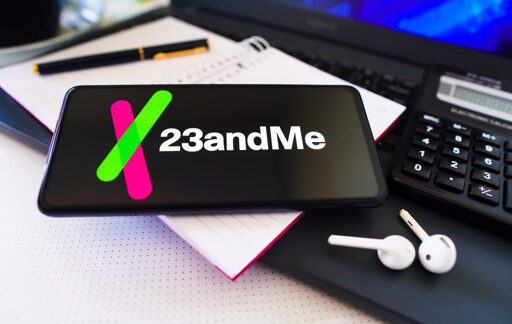Founder of 23andMe buys back company out of bankruptcy auction
-
This post did not contain any content.
All your DNA just got bought.
-
I bet there's far more cases of homeless and suicide due to a lost job than due to a shareholder losing value in one company's stock.
put it into actual numbers, not just playing on emotions
-
This post did not contain any content.
So glad I never did this one.
-
Calling it here, Costco is going to use the genetic information to create the perfect hot dog.
Membership is going to be linked to your DNA, the register will prick your finger to make sure you're valid.
-
Membership is going to be linked to your DNA, the register will prick your finger to make sure you're valid.
It’s almost certainly Oracle but there’s a slight possibility this is correct
-
It's not a great business model if you think about it. Customers pay a small fee once then never again.
When did selling a product instead of a subscription become a bad business model?
Edit: I have a lot of trouble believing that a product that could theoretically have value to every person on the planet for current and every future generations, that can't be passed along used or resold, couldn't develop a successful sustainable business model.
-
Calling it here, Costco is going to use the genetic information to create the perfect hot dog.
If it costs $1.51 I'm gonna flip shit.
-
put it into actual numbers, not just playing on emotions
What does, "I bet..." mean to you? You're welcome to find some numbers if you know how to evaluate P values, it was an expression but hell, name the price of the bet. Lol
-
All your DNA just got bought.
Bought back by the one person who already had prior access, and bought by her own research non-profit. As far as privacy concerns go, that's the best case scenario.
-
When did selling a product instead of a subscription become a bad business model?
Edit: I have a lot of trouble believing that a product that could theoretically have value to every person on the planet for current and every future generations, that can't be passed along used or resold, couldn't develop a successful sustainable business model.
When quarterly profits must always be green compared to the previous quarter.
-
When did selling a product instead of a subscription become a bad business model?
Edit: I have a lot of trouble believing that a product that could theoretically have value to every person on the planet for current and every future generations, that can't be passed along used or resold, couldn't develop a successful sustainable business model.
Selling a product is a good business model if the product has a shelf life or naturally degrades over time, but served you so well that you'll replace it in kind or with an upgrade.
A product that does something exactly once and done doesn't scale long term, so once the hype was over, that was that.
-
When did selling a product instead of a subscription become a bad business model?
Edit: I have a lot of trouble believing that a product that could theoretically have value to every person on the planet for current and every future generations, that can't be passed along used or resold, couldn't develop a successful sustainable business model.
When it's an inexpensive product that nobody ever has a reason to buy twice yet remains an ongoing cost for the company? (They keep the data available for review and continue to update it with useful information as knowledge of genetic traits and lineages grows). That's not a way to build an ongoing cash flow to cover expenses. Especially when all the people inclined to be interested have already purchased.
-
It's not a great business model if you think about it. Customers pay a small fee once then never again.
I assumed they were making absolute bank by selling the data
-
Costco already creates the perfect hotdog.
I say they should invest in bringing back the Polish dog. That was fucking delicious.
Come on up to Canada, we still got that garlic bomb. I can still taste the one from last week







